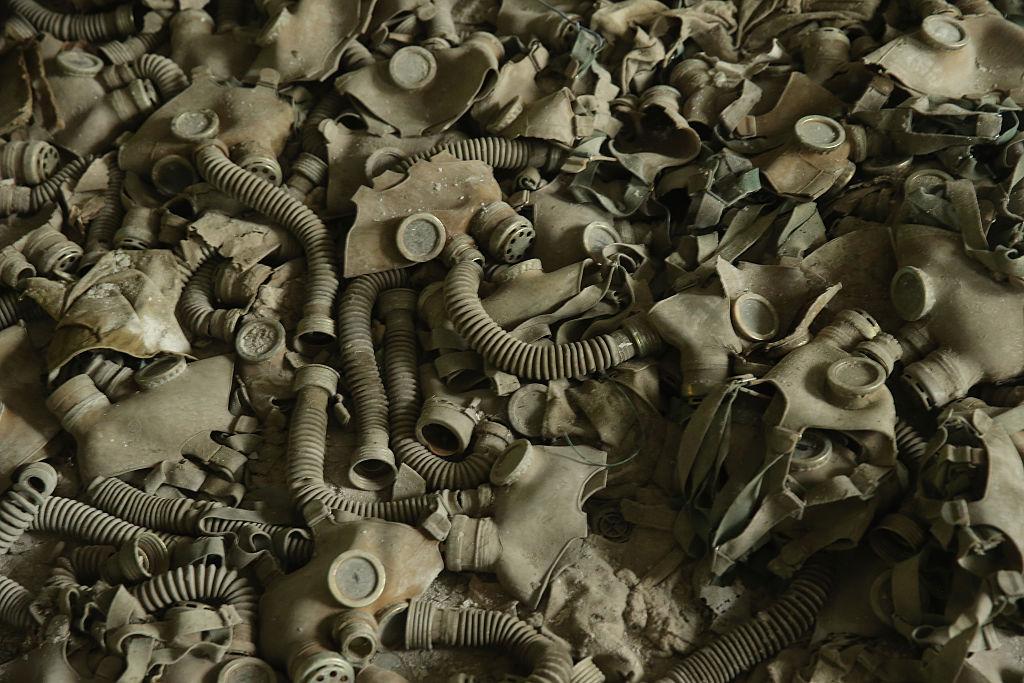
In March, not long after Russia’s invasion of Ukraine began, claims from the Kremlin of a US-funded bioweapon program in Ukraine flooded global media. Those reports were amplified by China and picked up by conservative news outlets and conspiracy groups in the US. Although the US and Ukraine denied Russia’s claims, and they were deemed false by the United Nations and the World Health Organization, this piece of disinformation raises questions about the Kremlin’s strategy in the current war and beyond.
When the reports first appeared, the US warned that Russia could be using this thread of disinformation to stage a false-flag incident using bioweapons, or to justify the use of its own bioweapons against Ukraine. It wouldn’t have been the first time Russia used false-flag tactics, and the threat of Russia using bioweapons in either scenario isn’t an outlandish prospect.
The Soviet Union’s bioweapon program began in the 1920s and was the largest and most sophisticated undertaken by any nation in the world. Despite joining the Biological Weapons Convention in 1972, the Soviets, and then the Russian Federation, continued the program into the 1990s. In 2021, the US concluded that Russia still possessed an offensive bioweapon program, or, at the very least, stockpiles of bioweapons and prevailing production capacities, in violation of the convention.
Russia has a history of deploying chemical weapons that includes using them in assassination plots and in the wars in Syria and Chechnya. Moscow neither follows international law prohibiting the use of chemical weapons nor adheres to international norms that proscribe their use as inhumane and abhorrent. It’s not clear that Russia’s mentality towards the use of bioweapons is any different.
An alternative explanation for the bioweapon disinformation campaign is that it was undertaken in part to justify Russian President Vladimir Putin’s decision to invade Ukraine. The invasion has been accompanied by a concerted disinformation campaign and internal propaganda tactics that originated long before 24 February.
A flood of disinformation narratives has emerged from Russia about the West over the past few years. The main theme since the start of the invasion has continued to be that the former Soviet nation is an innocent victim strong-armed into aggression to stave off NATO encroachment. The invasion has also been framed as a necessary ‘denazification’ of Ukraine. The bioweapon disinformation narrative has also played into this strategy and could be just another narrative spread by Russia to justify its unprompted invasion of Ukraine.
If Russia’s intent isn’t to use the bioweapon disinformation to escalate the war via military means, the Kremlin’s strategy could be to use this narrative to erode trust in the US, or to endanger the Cooperative Threat Reduction Program, a post–World War II initiative that converted the Soviet Union’s offensive bioweapon laboratories into safe public-health research facilities.
Russia’s use of bioweapon disinformation isn’t a new phenomenon; it’s a 70-year old strategy that has simply been ramped up since the invasion in Ukraine. The Soviet Union carried out major international bioweapon disinformation campaigns against the US in the past, including one declaring that the US used bioweapons against North Korea and China during the Korean War. Another accused the US of synthesising the HIV virus to deliberately wipe out African populations.
Russia also used the Covid-19 pandemic to undermine social cohesion and sow mistrust in rival nations’ governments by circulating conspiracy theories about the virus, particularly the Chinese narrative that it was a bioweapon engineered by the US. Covid-19 disinformation has undoubtedly played into the Kremlin’s claims about a US–Ukrainian bioweapon program, using scepticism surrounding the virus to provide credibility to its false narrative. Russia has also used the current monkeypox outbreak to target the US, saying that the virus was spread from US-operated laboratories in Nigeria.
It’s unclear at this stage whether Russia intends to use bioweapons in its war against Ukraine, but we shouldn’t rule out the possibility. Russia has a history of chemical weapons use that indicates a lack of adherence to international norms and laws prohibiting the use of weapons of mass destruction in conflict. And it is believed to possess offensive bioweapon capabilities. If Russia’s plan isn’t to use bioweapons, we should still be concerned about the Kremlin’s use of bioweapon disinformation as a tactic to sow mistrust in the US and NATO, for example, and to undermine initiatives that aid bioweapon non-proliferation.